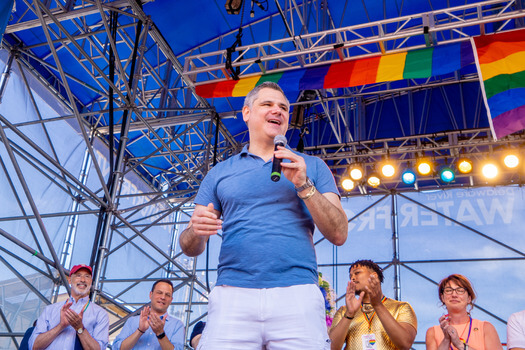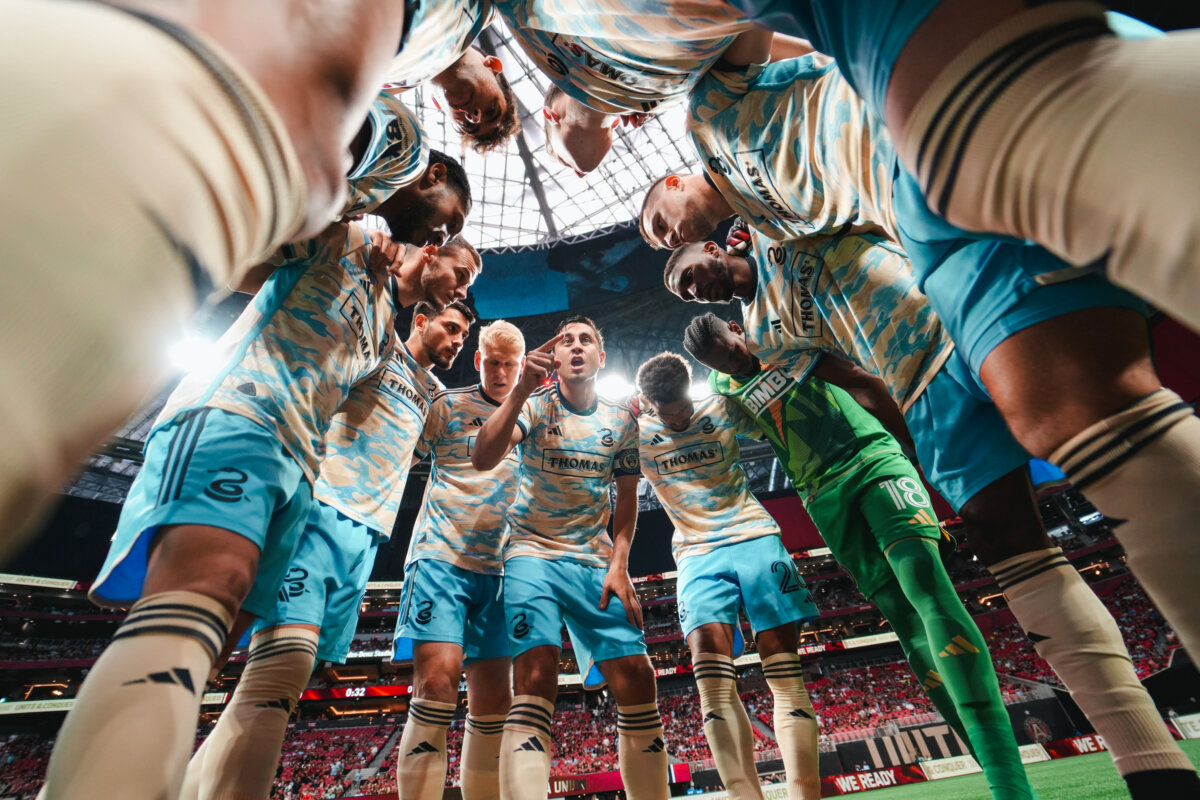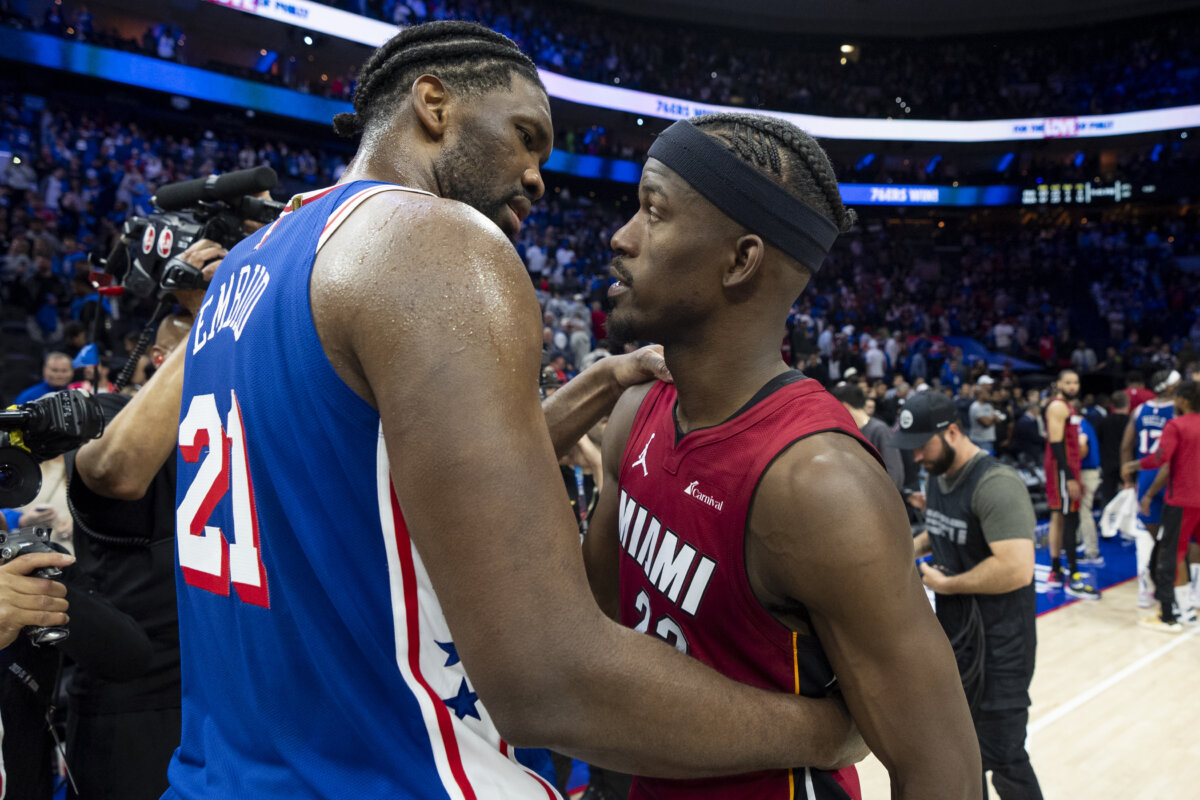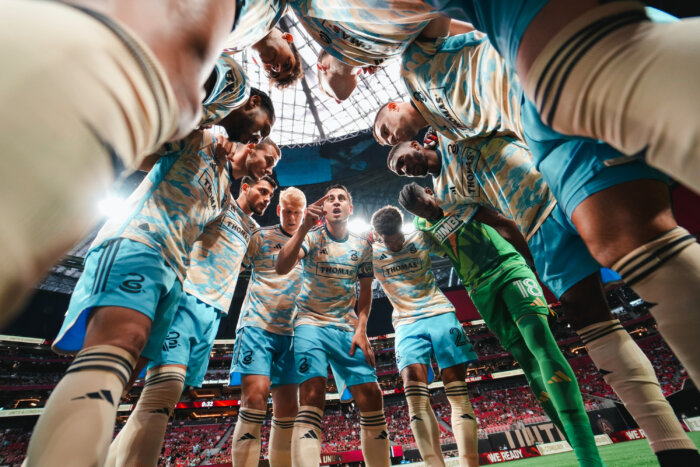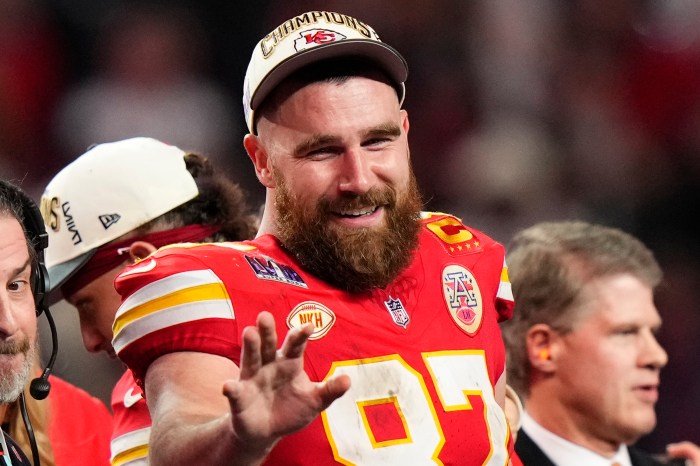Ever since Jeff Guaracino got the job as President and CEO of Visit Philly, the city’s official tourism marketing agency, in 2018, he’s made the most of his $1.25 million budget when it came to LGBTQ and LatinX marketing.
For those efforts, within the last month, Visit Philly and Guaracino has been gifted an Innovator of the Year Award by GayCities, a gay travel website, two awards from the U.S. Travel Association, and most recently, an Outstanding Association Award from the Philadelphia Inquirer’s 2019 Diversity & Inclusion Awards Gala.
During the week of November 21, “National Geographic Traveler” released its “Best Trips 2020” issue, with 25 must-see destinations and transformative travel experiences. The only U.S. destinations to make the list was Philadelphia and the Grand Canyon.
And the year isn’t over.
Guarancino, an out gay man, doesn’t do it for prizes. He does it for love and community and a city that deserves a bustling tourism industry, be it gay, straight, trans, non-binary, Black, White, Asian and Hispanic, all ages and beyond.
“I want to make Philadelphia shine on the world stage, and I want to do it through tourism,” said Guaracino, whos says that 45 million visitors come through the city’s limits, annually, and that 103,000 hospitality workers are employed at hotels, restaurants and the like to make that visit pleasant. “It’s an incredible, once-in-a-lifetime opportunity to tell the world about your hometown, my hometown.”
Solid business and creative approaches, “a sense of humor,” and a resistance to simple definition (“Philly hates to be defined in any way”), allow Visit Philly to highlight locations, events and experiences that enrich that true, tall tale. “It could be our 2019 LatinX campaign, “Filadelfia, You Gotta Feel It” or our LGBTQ-focused “Philadelphia Pioneers on the Road to Stonewall,” we’re carrying the ball forward. That’s a vision of Philly that the city itself provides. We’re not defining it with a slogan. The people do it for us. That what gives this place soul and authenticity.”
Inclusion and diversity are the names of the game for Guaracino, a big part of his strategy since his first go-round at Visit Philly 16 years ago with the queer marketing campaign “Get your history straight and your nightlife gay.” Reaching out to visitors on both coasts, to north and south, to Canada and more means propelling the tourism industry into the future. “Diversity is all around you in Philly. This is real. That becomes the opportunity to talk to as many people as possible, about Philadelphia and what sorts of experiences you can have here.” Guaracino calls the recent “Stonewall” campaign focusing on the 50th anniversary of NYC’s Stonewall uprising, was particularly audacious. “We knew it happened in New York, but Philadelphians played a giant role in the early LGBTQ civil rights movement. So, we’re going to insert ourselves, intentionally, into that conversation. It was ballsy, but respectful, and it paid off.”
Guaracino discusses the Hispanic community, the axis of people of Mexican, Spanish, Brazilian, Dominican. Puerto Rican, Venezuelan descent and more, as the fastest growing population in the country, an economic, hegemonic, political powerhouse, and calls its tourism marketing opportunities rich and flourishing. “This is a group that wants to travel and is multi-generational, so the LatinX campaign is as important as the African-American, and family campaigns.”
Next up for Visit Philly and Guaracino will be a focus on boomers and older generations, “people with money and experience who want a Philadelphia experience.” Surely, this will be part of the focused discussion come January 28, 2020, when Visit Philly hosts the 2020 Tourism & Hospitality Industry Outlook gathering at North Broad Street’s The Met.
Looking back to 2003, and Visit Philly’s aforementioned “Get your history straight and your nightlife gay” campaign, Guarcino recalls seeing mean letters to newspaper editors, and distress from elected officials. “There was a lot of that kind-of noise back then. Philly today, however, doesn’t see that kind-of resistance. And the awards are that sort-of indication – they’re giant symbols to all the communities with whom we work. They’re more than awards… Philadelphia supports all of this,” noted Guaracino. “It’s just like sports. They’ll tell you in a hot second when you’re not doing the right thing, and they’ll support you when you’re on the right path.”



